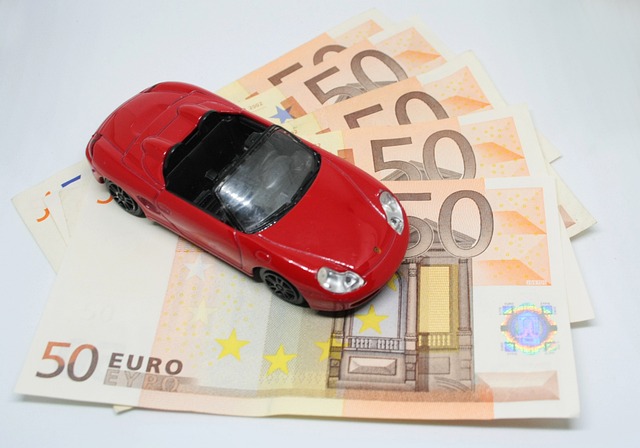Finding Quality Repossessed Cars: Your Complete Buying Guide
Repossessed cars offer an excellent opportunity for budget-conscious buyers to purchase quality vehicles at significantly reduced prices. When financial institutions reclaim vehicles due to loan defaults, these cars enter the resale market through various channels including auctions, dealerships, and direct bank sales. Understanding how to navigate this market can help you secure a reliable vehicle while saving thousands of dollars compared to traditional car purchases.

Overview of Repossessed Cars and How They Work
Repossessed cars are vehicles that banks, credit unions, or finance companies have reclaimed from borrowers who defaulted on their auto loans. When someone fails to make payments for typically 60 to 90 days, lenders initiate the repossession process to recover their investment. These vehicles are then sold to recoup the outstanding loan balance, often at prices well below market value.
The condition of repossessed vehicles varies widely. Some may be nearly new with low mileage, while others might show signs of wear or neglect. Unlike trade-ins at dealerships, repossessed cars are typically sold “as-is” without warranties, making thorough inspection crucial before purchase.
Bank Repossessed Cars in Your Area: Where to Find Them
Financial institutions handle repossessed inventory through several channels. Many banks maintain lists of available vehicles on their websites or through dedicated departments. Credit unions often offer first access to members before opening sales to the public. Local branches can provide information about upcoming inventory or direct you to their preferred auction houses.
Government agencies also sell repossessed vehicles from various sources. The IRS, DEA, and other federal agencies regularly auction seized assets, including high-end vehicles. State and local governments may also sell repossessed cars from unpaid taxes or violations.
Car Auctions and Vehicles Available Through Different Channels
Auto auctions represent the primary sales channel for repossessed vehicles. Dealer-only auctions like Manheim and ADESA handle large volumes but require dealer licenses for participation. Public auctions, however, welcome individual buyers and often feature government surplus and bank repossessions.
Online auction platforms have revolutionized repossessed car sales. Websites like Copart and IAA offer nationwide access to inventory, complete with detailed photos and condition reports. Many traditional auction houses now provide hybrid experiences, allowing online bidding for live auctions.
Repossessed Car Listings: How to Research and Evaluate Options
Successful repossessed car shopping requires diligent research. Vehicle history reports through Carfax or AutoCheck reveal crucial information about accidents, maintenance records, and previous ownership. These reports are essential since repossessed cars may have been neglected during financial difficulties.
Mechanical inspections become critical when warranties aren’t available. Professional pre-purchase inspections can identify potential issues that might cost thousands later. Pay special attention to maintenance records, as deferred service is common in vehicles heading toward repossession.
Repossessed Cars for Sale Nearby: Local vs Online Options
Local opportunities often provide the best value for repossessed car purchases. You can physically inspect vehicles, avoid shipping costs, and build relationships with auction houses or bank representatives. Local credit unions frequently offer the best deals to members, sometimes selling quality repossessions before they reach public auctions.
However, online platforms expand your options significantly. Rural buyers especially benefit from access to urban markets with larger inventories. Factor in transportation costs and the inability to physically inspect vehicles when considering distant purchases.
| Platform Type | Examples | Typical Cost Range | Key Benefits |
|---|---|---|---|
| Bank Direct Sales | Wells Fargo Auto, Chase Auto | 60-80% of market value | Better condition vehicles, some financing available |
| Public Auctions | Government surplus auctions | 50-70% of market value | Lowest prices, cash requirements |
| Online Auctions | Copart, IAA, Cars.com auctions | 55-75% of market value | Large inventory, detailed photos, nationwide access |
| Credit Union Sales | Local credit unions | 65-85% of market value | Member benefits, better vehicle history |
Prices, rates, or cost estimates mentioned in this article are based on the latest available information but may change over time. Independent research is advised before making financial decisions.
Making Smart Decisions When Buying Repossessed Vehicles
Success in the repossessed car market requires patience and preparation. Set a firm budget including inspection costs, potential repairs, and registration fees. Research typical auction procedures and payment requirements, as most sales require immediate payment or quick settlement.
Consider the total cost of ownership beyond the purchase price. Factor in immediate repair needs, insurance costs, and registration fees. Sometimes a slightly more expensive vehicle in better condition proves more economical long-term than the cheapest option available.
Conclusion
Repossessed cars present genuine opportunities for significant savings when approached with proper knowledge and preparation. Success depends on thorough research, careful inspection, and realistic budgeting for potential repairs. Whether shopping through local bank sales, credit union offerings, or online auction platforms, the key lies in understanding each channel’s advantages and requirements. With patience and diligence, buyers can secure quality vehicles at substantial discounts while avoiding the pitfalls that trap unprepared purchasers in costly mistakes.




